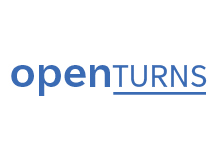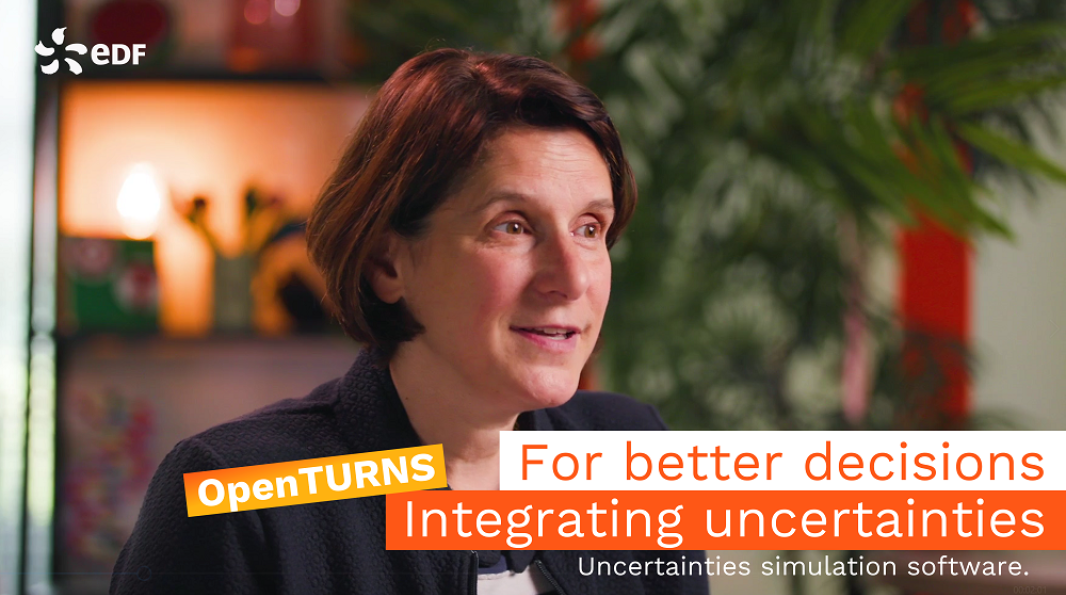OpenTURNS is an open source software that allows to model uncertainties, to propagate them through a calculation code, to prioritise their impacts on an output quantity. It is based on the Uncertainty Treatment Methodology developed by EDF R&D and enriched by our partners since the 2000’s.


Your browser does not support javascript.
To enable you to access the information, we suggest you view the video in a new tab.
Features for everyone
OpenTURNS proposes functionalities of various complexity, allowing to carry out all the steps of treatment of the uncertainties:
- the probabilistic modelling of a vector is based on the multivariate distribution whose dependency structure is a copula. A mechanism for composing distributions increases the modelling capabilities of the tool, particularly for the treatment of large dimensions. OpenTURNS also allows the modelling of processes (Gaussian processes, ARMA, etc.). Multivariate laws and processes can be built from data thanks to numerous statistical methods (parametric and non-parametric adjustment, fitting tests, data visualisation graphs, etc.).
- the propagation of uncertainties is ensured by dedicated algorithms, based on massive simulation (Monte Carlo methods and variance reduction methods), optimisation or integration based methods and analytical calculation whenever possible (using the algebra of funcitons of order 2).
- the hierarchisation is quantified by numerous indices specific to the propagation algorithms (Sobol inidces, FORM indices, ...).
- the computational code can be replaced by a response surface constructed from deterministic techniques (regression, ...) or probabilistic techniques (chaos polynomials, kriging, ...).
Three ways to use OpenTURNS
Developed under Unix/Linux and ported to Windows, OpenTURNS can be used in three different ways:
- as a C++ library included in a business application;
- as a python module (openturns), interfaced with most of python libraries for scientific calculation (numpy, scikit-learn, ...);
- using the Persalys graphical interface developed in partnership with PhiMECA.
Compatibility, licensing and documentation
OpenTURNS is governed by the LGPL license for its source code and the FDL license for its documentation.
OpenTURNS can be coupled with any computational code, written in any language and of any complexity (python, C, C++, FORTRAN or other language).
OpenTURNS can be used via SalomÉ, a CAD-calculation-visualisation linking platform developed in partnership.
OpenTURNS is largely documented:
- a scientific documentation (ReferenceGuide) detailing the OpenTURNS methods as well as the global methodology for the treatment of uncertainties,
- a documentation of the programming interface (API) describing the functionalities of the OpenTURNS classes,
- a set of didactic examples of increasing complexity allowing to use easily the python interface and to really understand the results obtained. The examples are available as python scripts and are validated with each release.
OpenTURNS is the subject of an ITECH training course (ARN4888): "Treatment of uncertainties: using the OpenTURNS tool".

